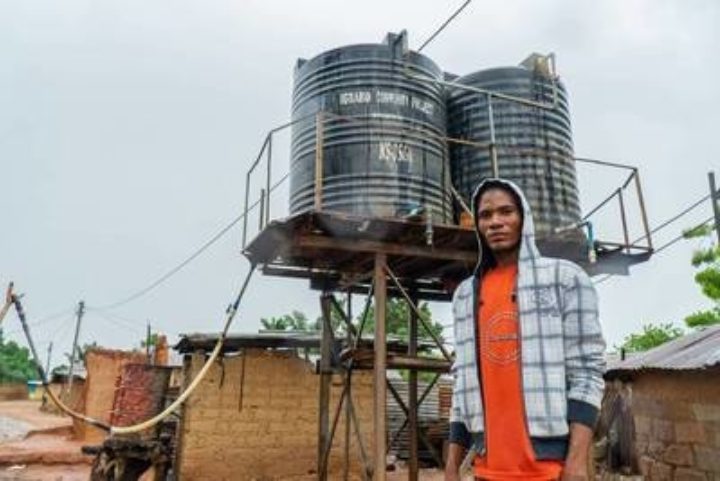Climate solutions happening globally as COP28 nears end
As COP28 nears the end, climate solutions are already happening aceoss the world, shown by winners of the 2023 Ashden Awards
By Ashok Sinha, CEO of Ashden
Share
Last updated:
Like many, I arrived at COP28 dosed up with scepticism: how could a petrostate committed to expanding the fossil fuel economy possibly wrangle the world onto a climate safe pathway, that by all logic necessitates phasing out fossil fuels? This was going to be the have your cake and eat it COP. A year of lost opportunity.
Think again. It is precisely because this COP has thrown such contradictions into stark relief that it is in many ways proving so valuable. It is forcing us to confront this misplaced belief that effective, affordable emissions abatement and removal from the atmosphere is just around the corner, in a very public way. Further, this backdrop is providing added motivation for everyone from big business and investors to those, like Ashden, who work in the grassroots innovation space, to step in and step up. While state actors are butting up against each other behind closed doors, the rest of us are getting on with getting stuff done.
Ashden Award winners show power of climate solutions

The winners of the 2023 Ashden Awards – given for outstanding, inclusive climate innovation – show what can be achieved by climate pioneers, including in the Global South. We’re here with them here to make the case that money committed in Dubai must finds its way to these organisations, and others like them, if we are to have any hope of global decarbonisation.
They include Husk Power Systems, winner of the 2023 Ashden Award for Outstanding Achievement. Husk’s ambitious Sunshot Initiative, which has just won $100 million of private investment, aims to benefit 7.7 million people across the continent within five years, by rolling out solar minigrids across the continent.
Husk’s Nigerian minigrids are backed with support for local small businesses, like affordable loans for kit like freezers or farm equipment. This approach ensures lasting demand for power, which helps to lower the price paid by consumers - a crucial strength of Husk’s work.
Staying in Nigeria, another 2023 Ashden champion is tackling the skills shortage that undermines the roll-out of clean energy systems, and addressing gender inequality too. Bura Solutions Academy offers flexible, hands-on learning – with affordable fees, scholarships and fee waivers for women – as well as help for trainees to find work. This holistic approach includes creating opportunities through the company’s own digital job listing platform.
Innovation in solar skills and training is needed to tackle two huge challenges facing Nigeria – 40% of the country’s people go without access to electricity, and unemployment has almost doubled in the last decade. The academy’s financial incentives for female applicants have ensure that 45% of the course graduates are women.
Global South and refugee voices speak out
My time at COP28 has also included chairing an event for the Power Up campaign, a platform for African voices and perspectives which are so often marginalised at COP summits and elsewhere.
Power Up, launched by Ashden and backed by more than 80 organisations, amplifies Africa’s call for greater global investment in energy access. It works to boost finance and support for the continent’s frontline organisations tackling energy poverty.
They are the ones boosting resilience and development by powering up jobs, food production, healthcare and more. They know how to work inclusively with local people, meeting the most urgent local needs with lasting solutions. But too little money flows from the Global North to tackle energy access, and too little of that money reaches frontline organisations.
Displaced people and refugees are particularly vulnerable to energy poverty. Ashden therefore greatly welcomed the recent COP28 Declaration on Climate, Relief, Recovery and Peace on December. The pledge highlights refugees and displaced people among those most affected by climate impacts, and urges investment in climate-smart energy systems. In particular, we back the declaration’s call to channel more finance and power to people facing humanitarian challenges, and those who work directly with them.
The urgent need for action was brought home at COP28 by Brian Onyango, CEO of 2023 Ashden Award winner USAFI Green Energy. His company manufactures cookstoves at Kenya’s Kakuma Refugee Camp. Smoke from open cooking fires and polluting stoves kills millions of people every year. Refugees are among those in greatest danger. So USAFI’s production of safer cookstoves protects health, creates jobs, and even helps deal with invasive prosopis trees that dry out local land and harm cattle. Now communities can turn the nuisance plant into a useful fuel.
I will give the final word to Brian. Speaking at our event on energy access in refugee settings, Brian said: “Since COP began we have never seen a refugee pavilion. Refugees have never been given a chance to showcase their innovations. It's not a demand but should be the right of representation of these groups of people.”
Share